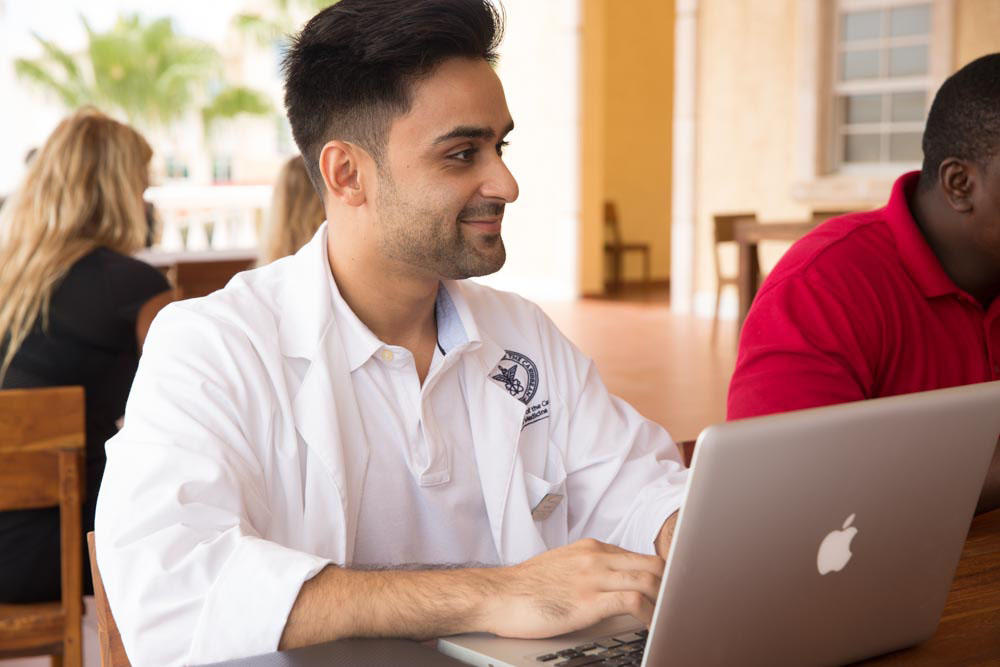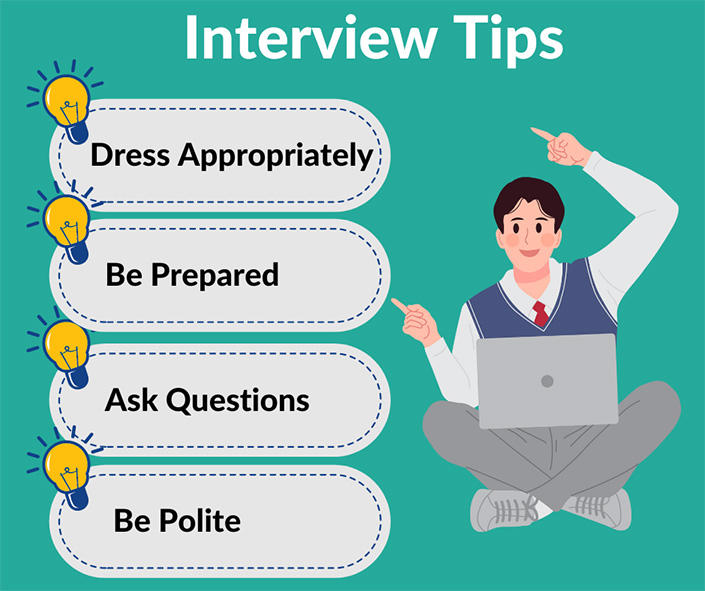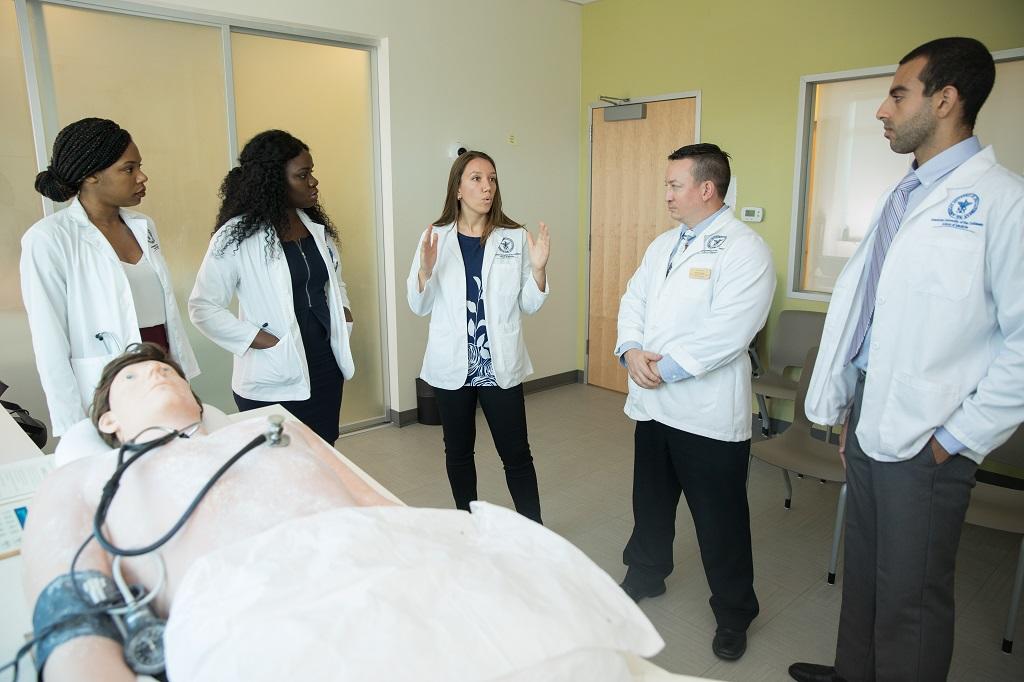At American University of the Caribbean School of Medicine (AUC), we know that the medical school application process can be complicated and sometimes intimidating. But it doesn’t have to be! If you take your time, provide all the necessary info, and give voice to the reasons why you want to be a doctor, you’ll have those applications ready before you know it. We’ll walk you through the medical school application process here, and throw in some helpful hints along the way.
Here’s what we’ll cover in this guide:
Steps to Take Before Submitting Your Primary Application
1. Complete Prerequisite Course Requirements
Studying medicine in the United States is only available as a postgraduate option. This means that students are only able to apply upon completion of a bachelor’s degree. No specific major is required, however they may ask for specific prerequisite courses. Other non-scientific degrees may also be accepted if the required courses are completed beforehand.
Exact pre med course requirements for schools within the Association of American Medical Colleges (AAMC) can be found here.
2. Take the MCAT® Exam
The Medical College Admissions Test® (MCAT®) is a standardized, multiple-choice exam which is a compulsory requirement for most U.S. medical schools. You can take the test after completing an undergraduate degree and before applying for medical school.
Registering for the MCAT can be done on the AAMC website, where you will be given a choice of various dates throughout the year to sit the exam.
The MCAT consists of four sections which assess your knowledge of a wide range of scientific topics and your skills, such as critical thinking and logical reasoning.
Further information on what to expect on the day of your MCAT can be found here.
3. Compose a Personal Statement
An important component of the admissions process is the personal statement (also known as the personal comments essay). This essay gives applicants a chance to present their qualities, skills, and traits to the admissions team. Your essay should tell them about yourself and explain why you would be a strong and suitable candidate.
4. Acquire Letters of Recommendation
Letters of recommendation are written by such professionals as professors, mentors, or physicians, outlining your academic abilities and your potential to succeed in the field of medicine.
Complete Your AMCAS® Primary Medical School Application
For Doctor of Medicine (MD) programs in the United States, first-year entering students may apply through the American Medical College Application Service (AMCAS), which was created by the AAMC.
Students enter all necessary information (personal data, transcripts, extracurricular activities, test scores, work experience, personal statements, etc.) and AMCAS relays it to each designated medical school.
Note: although you can’t use AMCAS to apply to AUC directly, you can use your completed AMCAS application to apply.
Students may begin their AMCAS applications in early May and submissions begin about a month later, giving students time to meet the typically autumn deadlines for medical school entry the following year. So, if you want to start medical school in the fall of 2025, you must begin the application process in the spring of 2024. A few schools (such as AUC) have flexible start dates and accept applications year-round — no deadlines, which is good!
Keep in mind that AMCAS isn’t free, but it isn’t cost prohibitive, either, considering how useful and necessary AMCAS is. The AMCAS fee of $175 (as of 2024) includes one medical school designation. Each additional designation costs $45. The AAMC Fee Assistance Program (FAP) may help qualifying applicants with these costs.
The AMCAS Applicant Guide provides a thorough account of the entire AMCAS medical school application process, but we’ll go through some highlights here. Applying with AAMC’s AMCAS includes:
Students should make sure that all information on their AMCAS application is complete and correct. After submission, only certain changes can be made. Each applicant should also monitor their AAMC med school application after it has been submitted. Even if all necessary information is included, the application process can take as long as eight weeks. Applicants should keep track of their AAMC application throughout the process. While applicants are not able to submit their application directly to AUC through AMCAS, they may upload their completed AMCAS application to AUC for review.
Other Primary Application Services
For students interested in Doctor of Osteopathy (DO) programs, the American Association of Colleges of Osteopathic Medicine® (AACOM®) created the American Association of Colleges of Osteopathic Medicine Application Service® (AACOMAS®). It is similar to AMCAS. For students interested in attending a public medical school in the state of Texas, the University of Texas System worked with the Texas Health Education Service to develop the Texas Medical and Dental Schools Application Service (TMDSAS). Another common application service, the Ontario Medical School Application Service (OMSAS), is for students who wish to attend one of the six medical schools in the Canadian province of Ontario.
Because all four of these primary application services deliver the required medical school application materials and information, applicants may submit completed applications to AUC.. Students may apply only through the AUC application, which is considered a secondary medical application.
Build a Competitive Medical School Application
Join AUC’s on-demand webinar for essential application, testing and interview tips!
Complete Your Secondary Application – School-Specific
Secondary applications are specific applications that you send to each medical school to which you apply. They are completed and sent after your primary application has been verified.
Sending in a secondary application may seem like extra work on top of every other aspect, but it could assist in a successful admission. Medical schools will appreciate applications that describe in depth why you would like to attend that school.
Secondary applications vary depending on the school. Some only require you to answer a few questions, while others request full-length essays. Secondary applications could also cost an additional fee and vary depending on the school. This can range from around $30 per application to $200. There are fee assistance programs that can aid with both primary and secondary costs.
Common questions on secondary applications:
What is a challenging scenario that you have had to overcome and how have you achieved this?
- Tips for answering: Choose a scenario that genuinely challenged you and allowed for personal growth. Clearly explain the situation, the obstacles faced, and the steps taken to overcome them. Highlight the skills, resilience, and determination you utilized to achieve a positive outcome.
If you have already graduated, what have you been doing since?
- Tips for answering: Showcase your continued engagement in activities related to healthcare or personal development. Emphasize any relevant work experience, research, volunteering, or further education you pursued. Demonstrate your commitment to learning and growth during the gap period.
Describe a moral or ethical dilemma you faced.
- Tips for answering: Select a situation where you were faced with conflicting values or difficult choices. Clearly outline the dilemma, including the ethical considerations involved. Discuss your decision-making process, the principles you relied upon, and the outcome of your choice. Reflect on the lessons learned and how the experience has shaped your ethical perspective.
Ace Your Interview
If a medical school admissions committee likes what they see in an application, they will usually arrange an interview with the applicant. The interview may take place on or off campus or online. It may be conducted by one or more admissions committee members or by such off-campus interviewers as practicing physicians. Generally, interview evaluations — good, bad, or neutral — are added to the rest of your application materials.
The interview is one of the most important parts of the medical school application process. It could be the difference between acceptance and denial. The interview is your chance to show your qualities and skills, as well as an opportunity to view the campus, ask relevant questions, and evaluate the medical school for yourself. The medical school interview season usually runs from September until the following spring.
Here are a few tips to help you ace the interview:
1. Dress appropriately
Make sure you dress professionally to maximize the impression you intend to make. Appropriate attire could be a neutral or dark-colored suit or a blazer with a knee-length dress.
2. Be prepared
Being as prepared as you can will make you feel confident and relaxed. The unfamiliar environment may seem daunting — but practice makes perfect. It would be sensible to practice answering interview questions beforehand to get into the flow of how you would answer in the actual interview. However, try not to recite or memorize answers as this may come across as disingenuous.
Common questions asked:
- Why did you choose to study medicine?
- What are your weaknesses?
- Why did you choose your undergraduate major?
- What skills have you learned to help manage your time and relieve stress?
- What kind of work experiences have you had?
- What is “success” in your opinion?
3. Ask questions!
You can also take the interview as an opportunity to ask the interviewer a few questions. Try not to ask questions that could be easily answered on their website, but focus on more in-depth questions that interest you. These could, for example, concern their innovative teaching methods, details about the curriculum structure, clinical experiences and student support.
4. Be polite
After the interview is over, be sure to thank the interviewers for their time. It is also a good idea to send a follow-up thank you email. This can make a good impression and may differentiate you from other applicants.
Extracurriculars that can help your application stand out
Medical school placements are highly competitive and many applicants have similar academic achievements. Admissions teams are always looking for students who are well rounded and stand out, and your extracurriculars can give you that boost. These extra activities can be anything from sports to music to medically-related interests.
In a practical sense, it is important to show your interest and passion for medicine through work experience and research that you may have undertaken prior to applying. This can also help highlight to the admissions team that you have developed your interpersonal skills and medical knowledge, which come in handy during your studies.
Admissions teams always look for students who can bring something different to their school, therefore partaking in sports and music will also show the medical school that you are a well-rounded student with interests and hobbies beyond medicine. Many universities offer sports and arts scholarships, and may also send out offers on the basis of your extracurriculars.
End Results
Your medical school applications will result in acceptance or denial, or you may be conditionally accepted or waitlisted.
AUC, for example, offers conditional acceptance based upon the completion of Adtalem Global Education’s Medical Education Readiness Program. Not being accepted may mean that you need to apply to more medical schools, but it may also mean that you need to strengthen and improve your application.
AUC’s on-demand webinar discusses various qualifying medical school components to help build a competitive application.
Frequently Asked Questions
Q: What is the percentage of applicants who are accepted to medical school?
A: Data compiled annually by the AAMC shows that in 2023 just 43.7 percent of applicants succeeded in gaining admission to a U.S. medical school — and this despite the fact that each student applied to an average of 18 medical schools! Don’t be too discouraged if you are denied. Instead, focus on how to make yourself a better applicant.
Q: How high should my MCAT and GPA be for med school?
A: AAMC data for 2023-2024 shows that the average med school applicant had an overall grade point average (GPA) of 3.64 and an MCAT score of 506.3. Matriculants scored just a bit higher: 3.77 overall GPA and a 511.7 MCAT. These are averages, of course, which means there may be students who were accepted with lower scores.
Q: What undergraduate majors do medical schools prefer?
A: Most medical schools do not have a preferred major. Applicants should be sure to complete required prerequisite courses. Some applicants major in science majors such as biology, chemistry, biological or biomedical sciences, and psychology. Non-science majors may apply as well, provided the applicant has satisfactorily completed the required prerequisite coursework.
Q: How many medical schools should I apply to?
A: According to the AAMC, the average applicant to U.S. MD-granting medical schools applied to 18 medical schools in 2023. Given the intense nature of the competition, it is recommended that students apply to no fewer than 15 schools or no more than 40; however, this is entirely up to you!
At AUC School of Medicine, our 2023-2024 MD graduates achieved a 98% first-time residency attainment rate* and will complete their post-graduate training across 22 specialties. Learn more about AUC and its MD program, and review again the requirements for admission. When you’re ready, submit an AUC application for admission or upload your AMCAS, AACOMAS, TMDSAS, or OMSAS application.
*Percentage of students attaining a 2024–2025 residency position out of all graduates or expected graduates in 2023–2024 who were active applicants in the 2024 NRMP match or who attained a residency position outside the NRMP match.







